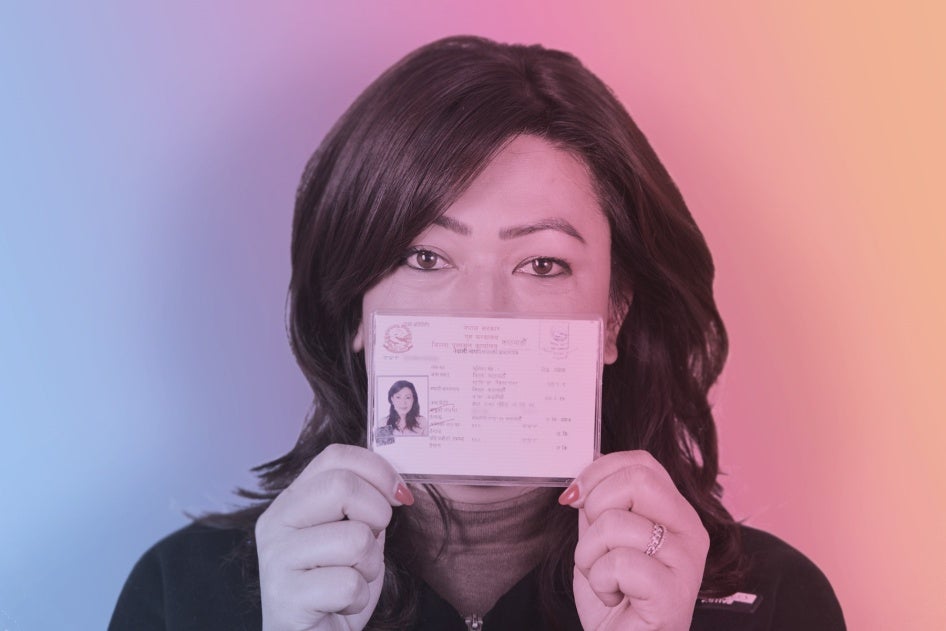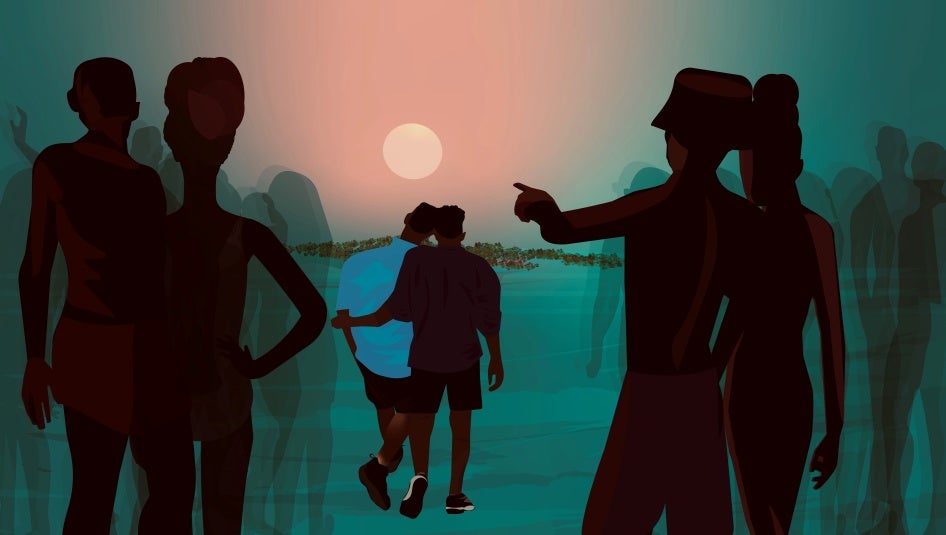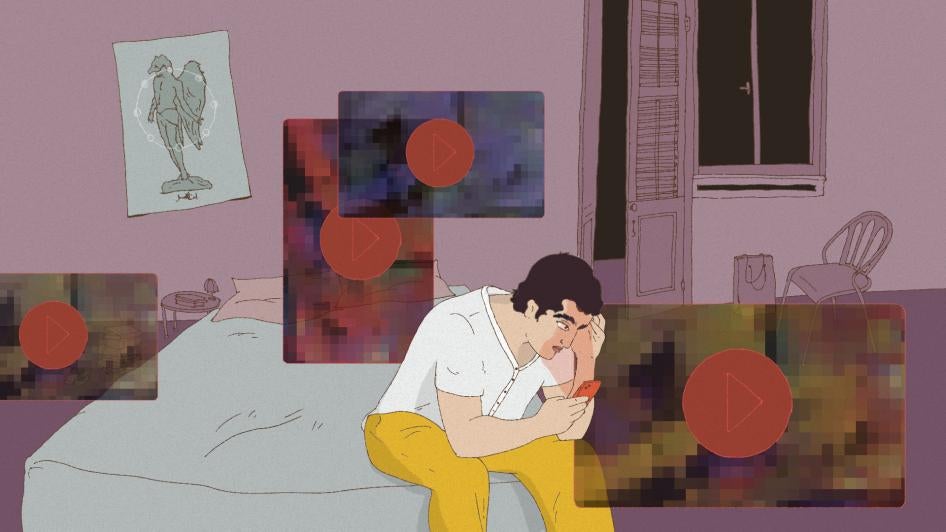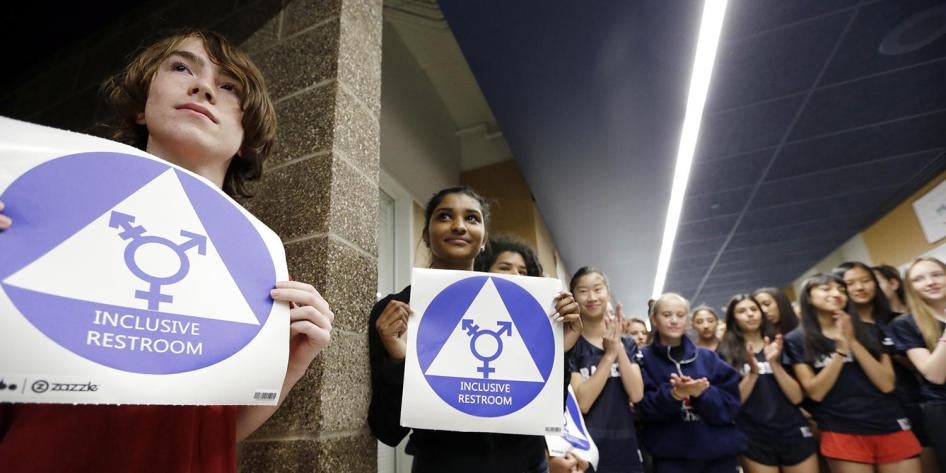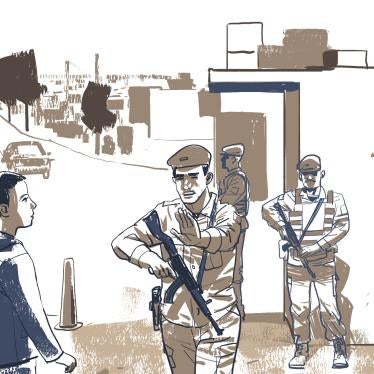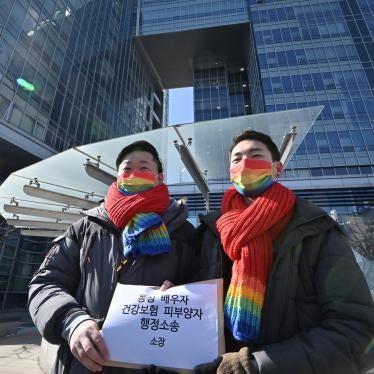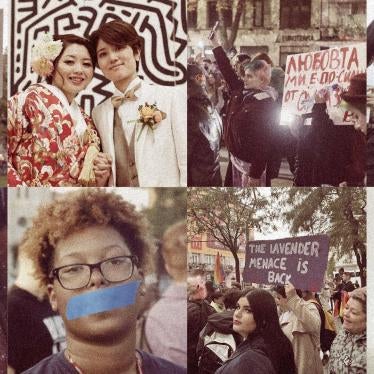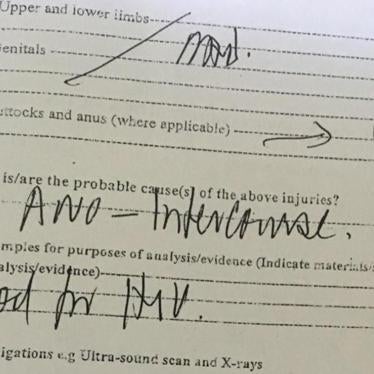Marking its 20th anniversary, the LGBT rights program at Human Rights Watch authored this collection of articles to explore the multifaceted challenges LGBT people face globally. Through this sequenced narrative, we aim to illuminate diverse facets of LGBT rights, spanning legal landscapes and political trajectories, both on a global scale and within regional contexts.
This series highlights both the progress made and the persistent struggles for bodily autonomy and access to fundamental rights, from the erosion of legal recognition for trans individuals in the US to the hyper-medical control over trans people in the absence of legal protections. It also highlights decriminalization movements in the “Global South,” and the de facto criminalization of same-sex relationships. We include discussion of the fight for familial rights by LBQ+ individuals, the manipulation of child-protective arguments by anti-LGBT actors, and the reclaiming of Pan-Africanism to support LGBT people’s rights.
When Laws Fail to Protect Trans People, Harmful Medicalized Norms Creep In
by Kyle Knight
Earlier this year, Germany became the world’s latest country to pass a clear law that allows transgender people to change their legal gender to reflect their identity based on self-declaration. A number of other countries are staggering toward this goal; in some, policies allow self-identification for some documents and not others. But the majority of the world’s governments still either disallow changes in legal gender recognition altogether, or have laws that require trans people to undergo medical intervention to access their rights.
An Urgent Call to Protect Gender-Affirming Care
by Yasemin Smallens
Amid the ongoing strides in lesbian, gay, bisexual, and transgender (LGBT) rights, a disconcerting trend has surfaced: government bans on life-saving medical care for transgender people. Currently, 24 US states have enacted prohibitions on gender-affirming care for trans youth, leaving over 36 percent of such youth without access to treatment. Despite claims by conservative leaders that these bans protect vulnerable children, the reality is that these restrictions can put them in danger.
Decriminalizing Gay Sex: A Universal Human Rights Imperative
by Cristian González Cabrera
In April, Dominica became the latest country to decriminalize consensual same-sex conduct. A local court ruled that provisions banning “buggery” and “serious indecency,” understood to criminalize gay sex, were unconstitutional. The ruling is historic for Dominica because it finally cast off a colonial legal relic that had been an obstacle to full equality for sexual and gender minorities. But beyond this Eastern Caribbean nation, the ruling has important implications.
Beyond Decriminalization of Same-Sex Relations
by Hala Maurice Guindy
Across the Middle East and North Africa region, the criminalization of consensual same-sex relations and diverse gender expressions persists, subjecting people identifying as LGBT to widespread human rights abuses. Within this landscape, some countries do not have explicit laws targeting people with diverse sexual orientations, but that does not mean that they are safe or equal.
Treacherous Internet: Cyber-criminalization of LGBT People
by Rasha Younes
When I was researching the digital targeting of LGBT people across the Middle East and North Africa region, I spoke to Yamen, a gay man from Jordan. He told me that he was extorted online by another man, who was threatening to post a compromising video of Yamen on social media, and that his biggest regret was going to the authorities to seek protection. Instead of prosecuting the extortionist, a Jordanian court sentenced Yamen to six months in prison for “promoting prostitution online.”
His experience is not an isolated incident.
Women's Autonomy is Foundational to Queer Justice
by Erin Kilbride
Recent attacks on reproductive rights in the US have affected both queer and heterosexual people aspiring to parenthood. But discrimination against queer and single women who want to start and protect their families is a global issue.
As Governments Demonize LGBTQ+ Rights, Children Lose the Most
by Ryan Thoreson
Several countries in recent years have passed draconian laws seeking to limit fundamental freedoms of LGBT people. And they have done so by suggesting that the mere existence of LGBT people in the public sphere poses a threat to children. This tired and offensive stereotype and the laws governments pass because of it most harms LGBT children, who are made to feel alone and kept from seeing how they might flourish as they grow up.
We Need to Reclaim Pan-Africanism Through Love - for Everyone
by Larissa Kojoué
Media headlines are full of bad news about LGBTQ+ people across the African continent these days. They are insulted by public officials, attacked and killed by police and vigilantes, and denied access to justice and dignity. Often, these negative words and actions are justified as being part and parcel of “African values." However, the concept of pan-Africanism should, in fact, embrace African people in all their diversity—even love them.
